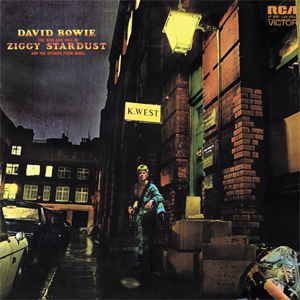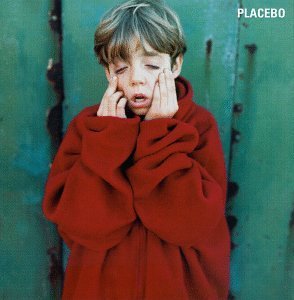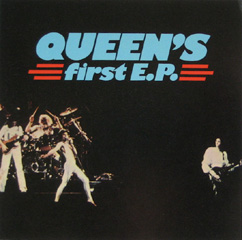
Robert Michael Nesmith, often known as Mike Nesmith, was an American musician, songwriter, and actor. He was best known as a member of the pop rock band the Monkees and co-star of the TV series The Monkees (1966–1968). His songwriting credits include "Different Drum", which became a hit for Linda Ronstadt and the Stone Poneys.

The Monkees were an American pop rock band formed in Los Angeles in 1966, comprising Micky Dolenz, Michael Nesmith, Peter Tork and Davy Jones. They were conceived in 1965 as a fictional band for the sitcom The Monkees by the television producers Bob Rafelson and Bert Schneider. Music credited to the Monkees appeared in the sitcom, which aired from 1966 to 1968, and was released on LP.
Glam rock is a style of rock music that developed in the United Kingdom in the early 1970s and was performed by musicians who wore outrageous costumes, makeup, and hairstyles, particularly platform shoes and glitter. Glam artists drew on diverse sources across music and throwaway pop culture, ranging from bubblegum pop and 1950s rock and roll to cabaret, science fiction, and complex art rock. The flamboyant clothing and visual styles of performers were often camp or androgynous, and have been described as playing with other gender roles. Glitter rock was a more extreme version of glam rock.

The Rise and Fall of Ziggy Stardust and the Spiders from Mars is the fifth studio album by English musician David Bowie, released on 16 June 1972 in the United Kingdom through RCA Records. It was co-produced by Bowie and Ken Scott and features Bowie's backing band the Spiders from Mars — Mick Ronson, Trevor Bolder and Mick Woodmansey. It was recorded from November 1971 to February 1972 at Trident Studios in London.

Aladdin Sane is the sixth studio album by the English musician David Bowie, released in the United Kingdom on 19 April 1973 through RCA Records. The follow-up to his breakthrough The Rise and Fall of Ziggy Stardust and the Spiders from Mars, it was the first album he wrote and released from a position of stardom. It was co-produced by Bowie and Ken Scott and features contributions from Bowie's backing band the Spiders from Mars — Mick Ronson, Trevor Bolder and Mick Woodmansey — with pianist Mike Garson, two saxophonists and three backing vocalists. Recorded in London and New York City between legs of the Ziggy Stardust Tour, the record was Bowie's final album with the full Spiders lineup.
Babylon Zoo were an English rock band formed in 1992 in Wolverhampton. Their song "Spaceman" gained considerable exposure through its use in a Levi's jeans television advert in the United Kingdom in late 1995. Released as the band's debut single on 21 January 1996, it entered the UK Singles Chart at number one. "Spaceman" led to the band being considered a one-hit wonder; they had little success with any subsequent releases.

Hot Space is the tenth studio album by the British rock band Queen. It was released on 4 May 1982 by EMI Records in the UK and by Elektra Records in the US. Marking a notable shift in direction from their earlier work, they employed many elements of disco, funk, rhythm and blues, dance and pop music on the album. This made the album less popular with fans who preferred the traditional rock style they had come to associate with the band. Queen's decision to record a dance-oriented album germinated with the massive success of their 1980 hit "Another One Bites the Dust" in the US.

Diamond Dogs is the eighth studio album by the English musician David Bowie, released on 24 May 1974 through RCA Records. Bowie produced the album and recorded it in early 1974 at Olympic and Island Studios in London and Ludolph Studios in the Netherlands, following the disbanding of his backing band the Spiders from Mars and the departure of producer Ken Scott. The absence of Mick Ronson led Bowie to play lead guitar on the record. The album featured the return of Tony Visconti, who had not worked with Bowie for four years; the two would collaborate for the rest of the decade. Musically, it was Bowie's final album in the glam rock genre, though some songs were influenced by funk and soul music, which Bowie embraced on his next album, Young Americans (1975).

Placebo is the debut studio album by British alternative rock band Placebo. It was released on 17 June 1996 by record label Virgin. It is the only album recorded with drummer Robert Schultzberg before his departure from the group.

Lodger is the 13th studio album by English musician David Bowie, released on 25 May 1979 through RCA Records. After an eventful year that saw the release of two studio albums, Low and "Heroes", and many other side projects in 1977, Bowie embarked on the Isolar II world tour in 1978. During a break in the tour, Bowie regrouped with collaborator Brian Eno and producer Tony Visconti to record his next album. The final release of the Berlin Trilogy, the album was recorded mainly at Mountain Studios in Montreux, Switzerland, in September 1978. Most of the same personnel from prior releases returned, and future King Crimson guitarist Adrian Belew joined from the tour.

"Trash" is the first single from English rock band Suede's third studio album, Coming Up (1996). Released on 29 July 1996 via Nude Records, "Trash" was the first single on which all the songs were written without guitarist Bernard Butler, since Richard Oakes had taken his place. The single is tied with "Stay Together" as the band's highest-charting single on the UK Singles Chart, peaking at number three; however, it outsold the earlier single, thus making it their biggest-selling single. Outside the UK, the song topped the Finnish Singles Chart in late August and reached the top five in Denmark, Iceland, and Sweden.

"Boys Keep Swinging" is a song by English musician David Bowie, released on 27 April 1979 by RCA Records in the United Kingdom as the lead single from his 1979 album Lodger. It was written by Bowie and Brian Eno and recorded in Montreux and New York City in September 1978 and March 1979. The recording utilised techniques from Eno's Oblique Strategies cards, which resulted in the musicians swapping instruments. Adrian Belew contributed a guitar solo, which he played receiving little guidance and was composited from multiple takes. The song was also built on the same chord sequence as album track "Fantastic Voyage". Musically, "Boys Keep Swinging" contains elements of glam rock, funk and new wave, while lyrically, the song deals with the concept of gender identity, featuring various gender-bending lyrics. Bowie himself stated that the song was full of irony.

"Moonage Daydream" is a song by English singer-songwriter David Bowie. It was originally recorded in February 1971 at Radio Luxembourg's studios in London and released as a single by his short-lived band Arnold Corns in May 1971 on B&C Records. Bowie subsequently re-recorded the song later that year with his backing band the Spiders from Mars—comprising Mick Ronson, Trevor Bolder and Mick Woodmansey—for release on his 1972 album The Rise and Fall of Ziggy Stardust and the Spiders from Mars. The re-recording was co-produced by Ken Scott and recorded at Trident Studios in London in November 1971. The re-recording is a glam rock song that uses melodic and harmonic hooks, as well as percussion and guitar influenced by heavy metal. On the album, the song directly introduces the character Ziggy Stardust, who describes himself as a bisexual alien rock superstar who will save the Earth from the impending disaster described in the opening track "Five Years". It features saxophone played by Bowie and a guitar solo and string arrangement by Ronson.

Tanx is a 1973 album by rock band T. Rex, the eighth since their debut as Tyrannosaurus Rex in 1968, and the fourth under the moniker T. Rex. It was released on 16 March by record label EMI. Tanx was a musical departure from previous works: still containing tracks in the vein of The Slider, singer and songwriter Marc Bolan showed his interest for soul music, funk and gospel. Female backing singers appeared on a few tracks. New instruments such as mellotron were used, played by producer Tony Visconti, allowing the T. Rex sound to evolve.

Cobra Verde is an American rock band formed in Cleveland, Ohio. Founded in 1994, the group has released six albums, including the acclaimed Nightlife,Easy Listening, and Haven't Slept All Year.

"I Don't Like the Drugs (But the Drugs Like Me)" is a song by American rock band Marilyn Manson. It was released as the second single from their third studio album, Mechanical Animals (1998). It was written by the band's eponymous frontman, along with bassist Twiggy Ramirez and then-guitarist Zim Zum, and was produced by Manson and Michael Beinhorn. A glam rock song inspired by drugs, television, and religion, the track features a gospel choir and a guitar solo by Dave Navarro of Jane's Addiction.

"Rock Is Dead" is a song by American rock band Marilyn Manson. It was released as the third single from their third studio album, Mechanical Animals (1998). It was written by the band's eponymous frontman, along with bassist Twiggy Ramirez and keyboardist Madonna Wayne Gacy, and was produced by Manson, Michael Beinhorn and Sean Beavan. A glam rock and heavy metal track with elements of electronic music and grunge, the song features electric and bass guitars, keyboards, and live drums in its instrumentation. The song was featured on the soundtrack of the Wachowskis' film The Matrix (1999).

T. Rex were an English rock band, formed in 1967 by singer-songwriter and guitarist Marc Bolan, who was their leader, frontman and only consistent member. Though initially associated with the psychedelic folk genre, Bolan began to change the band's style towards electric rock in 1969, and shortened their name to T. Rex the following year. This development culminated in 1970 with their first hit single "Ride a White Swan", and the group soon became pioneers of the glam rock movement.

Ziggy Stardust is a fictional character created by English musician David Bowie, and was Bowie's stage persona during 1972 and 1973. The eponymous character of the song "Ziggy Stardust" and its parent album The Rise and Fall of Ziggy Stardust and the Spiders from Mars (1972), Ziggy Stardust was retained for Bowie's subsequent concert tour through the United Kingdom, Japan and North America, during which Bowie performed as the character backed by his band The Spiders from Mars. Bowie continued the character in his next album Aladdin Sane (1973), which he described as "Ziggy goes to America". Bowie retired the character on 3 July 1973 at a concert at the Hammersmith Odeon in London, which was filmed and released on the documentary Ziggy Stardust and the Spiders from Mars.

Queen's First E.P. is the first extended play by British rock band Queen. It was released on 20 May 1977 by EMI Records. The album consists of four tracks, one from each of their four most recent albums up to that point, with "Good Old-Fashioned Lover Boy" as the lead track.

















